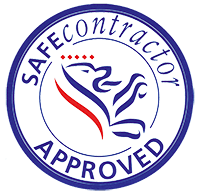You may be keen to hang on to summer but as the weather becomes more autumnal, just cast your mind back to the wildly varying temperatures we've seen over the last few years and the issues that they caused. Following a few simple steps now, before you’re ready to turn the heating back on, will help you prevent the common problems that people can experience in the transition into autumn.
We are increasingly experiencing extremes of weather, generally accepted as a result of climate change so we need to make sure we're pretty much prepared for anything.
One of the most common times to experience issues with your boiler is when you turn the heating back on in the autumn after being off over the spring and summer. Be proactive now and minimise the chances of things breaking down when you really need them.
Here’s what you can do:
In summer that sounds counter intuitive but it does benefit your boiler to turn the heating on for 10-15 minutes every month or so throughout the spring and summer as it keeps all your boiler parts working and highlights any potential issues at a time when it’s most convenient to get them resolved.
Excess air trapped in radiators will compromise their performance over the winter but still cost the same in terms of energy consumption. It’s worth bleeding them periodically anyway but you can check to see whether yours are affected by putting the heating on and checking to see that they heat evenly. Put them on full and then turn down to the right temperature for autumn once you’ve checked them. If they only heat at the bottom and not the top then they need bleeding. It’s not difficult to do, see some instructions here. Cold spots could also be a sign of sludge in the system so a powerflush is recommended.
Having your boiler serviced before you’re due to turn the heating back on is a great idea. It means that all your serviceable parts and settings are checked and action can be taken against any areas of concern like sludge build up. It’s also cheaper to have your boiler serviced in the summer so it’s a win win situation.
Pipes freezing when temperatures plunge is a common problem. This includes your condensate pipe from the boiler. Check all the joints for signs of wear and tear and weak spots and replace or repair any that don’t look robust. You should also lag the pipes to give them extra protection against the cold. Lagging is cheap from any DIY store and frozen pipes can cause flood and boiler breakdowns so it really makes sense to do this now. If your pipes are already lagged just check that it’s still up to the job and if not, just replace it.
If you have a leak or flood the first thing to do is to turn the water supply off at the stop tap. In that kind of emergency situation, that is not the time to find that a) you don’t really know where it is or b) it’s difficult to access or to turn. Locate your stop tap now and check that it turns easily: you will be thankful you did this should water start cascading from the ceiling! If it is difficult to access or to turn you may want to consider having a Sure Stop installed which is a remote stop tap that can be fitted in a more convenient location and uses a simple switch.
While you’re doing this, just check that the supply to your outside tap has a separate stop tap or valve so that it can be isolated if required. This just means that should the pipe freeze and cause a joint to pop, you can turn off the supply without having to turn the supply for the whole house off. If it doesn’t have one, consider getting it done before winter.
Carbon monoxide poisoning is thankfully rare and you don’t really need to worry too much if you maintain your gas appliances properly by having them serviced by a Gas Safe engineer. That said, it can still happen and if the flue of your boiler is blocked, turning the heating on in the autumn can potentially put you at risk. Every home should have a CO monitor that would alert you to any CO leak. If you have one, test the battery to make sure it’s working ok. If you don’t have one you really need to get one.
All these things are really just sensible precautions that can help you save money, avoid costly and inconvenient boiler breakdowns, minimise damage in an emergency and even save your life. Definitely worth a couple of hours of your time now then.
If you have any further queries about getting your plumbing and heating winter-ready or would like us to attend to any of the above you can call us on 0333 577 0151 or send us a message using the form to the right.
Complete the form below and one of the Plumbcare.com team will get back to you as soon as possible.





